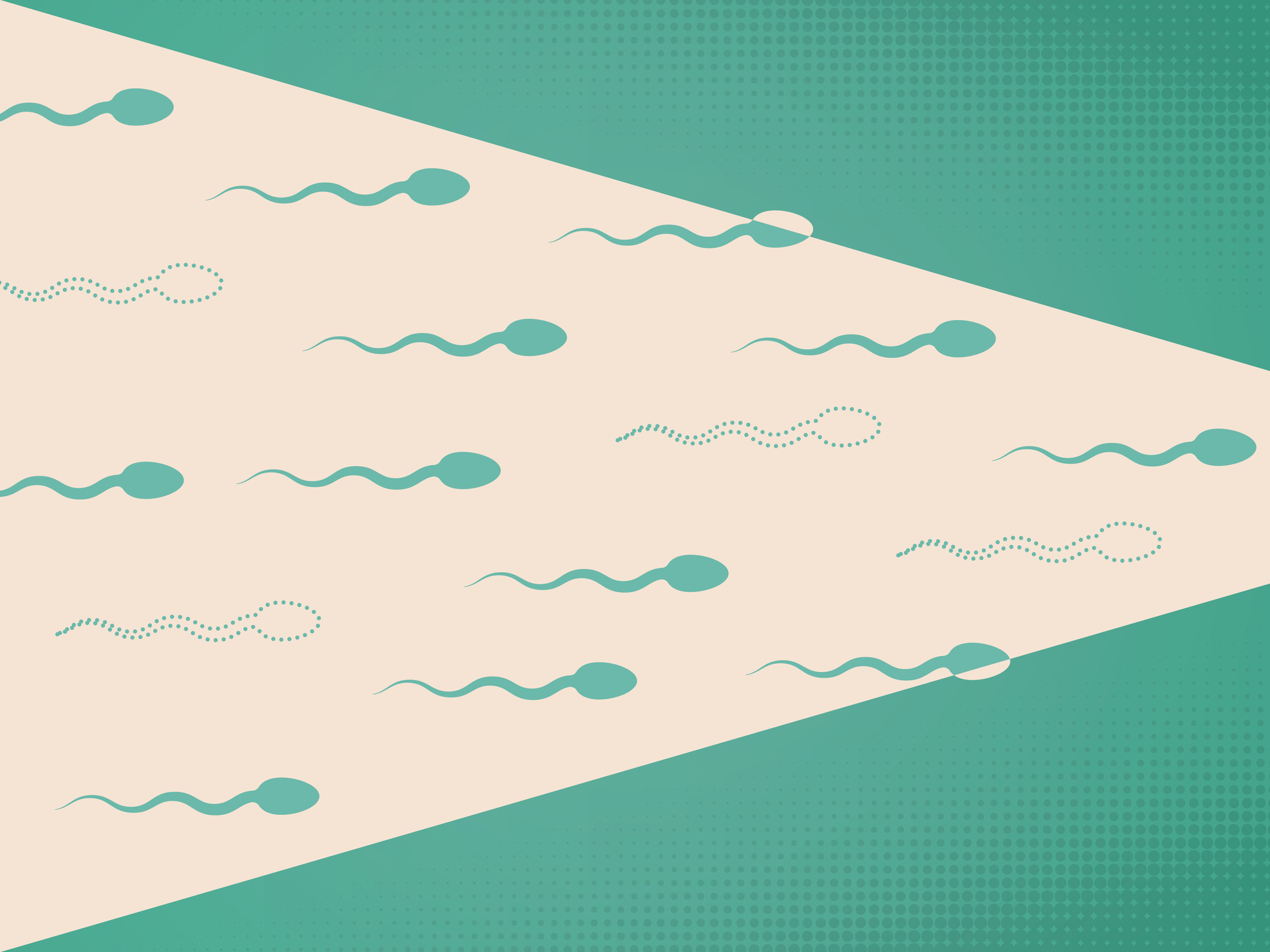Why is male fertility declining?
Sperm count has halved over the last 50 years. Should we be concerned?


A free daily email with the biggest news stories of the day – and the best features from TheWeek.com
You are now subscribed
Your newsletter sign-up was successful
Is the world in the midst of a male fertility crisis? Or are we overstating the problem? Here's everything you need to know:
How has male fertility declined?
Human sperm count has fallen by over 50 percent over the last 50 years, according to a 2022 study published in the journal Human Reproductive Update. Global birth rates are also at a record low, with more than 50 percent of the world's population living in countries "with a fertility rate below two children per woman," according to BBC. And low sperm count is not the only driving factor here — research has also indicated a decline in testosterone levels, as well as higher rates of testicular cancer and erectile dysfunction among men, per BBC.
"I think one of the fundamental functions of any species is reproduction," urologist Michael Eisenberg told CNN. "So I think if there is a signal that reproduction is in decline, I think that's a very important finding."
The Week
Escape your echo chamber. Get the facts behind the news, plus analysis from multiple perspectives.

Sign up for The Week's Free Newsletters
From our morning news briefing to a weekly Good News Newsletter, get the best of The Week delivered directly to your inbox.
From our morning news briefing to a weekly Good News Newsletter, get the best of The Week delivered directly to your inbox.
Overall, infertility affects one out of every six people in the world, according to a new report from the World Health Organization.
Why is male fertility declining?
The exact cause of the decline remains unclear, but some theories have emerged.
Lower sperm counts among men could come as a result of epigenetic changes, or "alterations to the way genes work, caused by environmental or lifestyle factors," as defined by BBC. "There are signs that it could be cumulative across generations," Hagai Levine, a professor of epidemiology, told the outlet. "This [declining sperm count] is a marker of poor health of men, maybe even of mankind."
Speaking of, a general decline in health could also be a factor. "There is a strong link between a man's reproductive health and his overall health. So it could also speak to that too, that maybe we're not as healthy as we once were," Eisenberg, the urologist, told CNN. Further, "stress of the mother, maternal smoking, and especially exposure to manmade chemicals that are in plastic, such as phthalates," can also disrupt the development of the male reproductive system," Levine added, speaking with CNN.
A free daily email with the biggest news stories of the day – and the best features from TheWeek.com
Even climate change and the environment could play a role. A 2022 study found that rising temperatures negatively impact sperm quality. Indeed, "heat stress is considered to be the most influential cause of reproductive function in mammals," the study said. Additionally, BBC writes, "chemicals found in plastics, household medications, in the food chain and, in the air," can cause DNA fragmentation or "damage or breaks in the genetic material of the sperm."
So is this cause for concern?
Opinions on the matter are mixed.
As Rachel Gross points out for The New York Times, "no one knows what an 'optimal' sperm count is." A person needs 40 million sperm per milliliter of semen to be considered fertile, and a count above that "does not mean a man is more fertile."
Further, "the way that semen analysis is done has changed over the decades. It has improved. It has become more standardized, but not perfectly," Dr. Alexander Pastuczak, a surgeon and assistant professor at the University of Utah School of Medicine, told CNN. "Even if you were to take the same semen sample and run it and do a semen analysis on it in the 1960s and '70s versus today, you'd get two different answers."
Even so, the matter "should be studied," Levine, the epidemiology professor, argued to BBC. "We are facing a public health crisis — and we don't know if it's reversible." The decline in both sperm quality and count could be indicative of a larger problem, he said.
Dr. Scott Lundy, a urologist at the Cleveland Clinic, agrees. "While it's not a cause for panic, because the counts are by and large still normal, on average," he told CNN, "there is a risk that they could become abnormal in the future, and we have to recognize that and study that further."
Devika Rao has worked as a staff writer at The Week since 2022, covering science, the environment, climate and business. She previously worked as a policy associate for a nonprofit organization advocating for environmental action from a business perspective.
-
 What to know before filing your own taxes for the first time
What to know before filing your own taxes for the first timethe explainer Tackle this financial milestone with confidence
-
 The biggest box office flops of the 21st century
The biggest box office flops of the 21st centuryin depth Unnecessary remakes and turgid, expensive CGI-fests highlight this list of these most notorious box-office losers
-
 What are the best investments for beginners?
What are the best investments for beginners?The Explainer Stocks and ETFs and bonds, oh my
-
 Scientists are worried about amoebas
Scientists are worried about amoebasUnder the radar Small and very mighty
-
 Metal-based compounds may be the future of antibiotics
Metal-based compounds may be the future of antibioticsUnder the radar Robots can help develop them
-
 Peanut allergies have plummeted in children
Peanut allergies have plummeted in childrenUnder the radar Early introduction could be an effective prevention method
-
 Climate change is getting under our skin
Climate change is getting under our skinUnder the radar Skin conditions are worsening because of warming temperatures
-
 Climate change is making us eat more sugar
Climate change is making us eat more sugarUnder the radar Sweets make the heat feel more manageable
-
 Human evolution may be responsible for autism rates
Human evolution may be responsible for autism ratesUnder the radar Neurodiversity and a complex brain may go hand in hand
-
 Scientists are speeding up evolution
Scientists are speeding up evolutionUnder the radar Proteins can evolve in minutes
-
 Sloth fever shows no signs of slowing down
Sloth fever shows no signs of slowing downThe explainer The vector-borne illness is expanding its range
